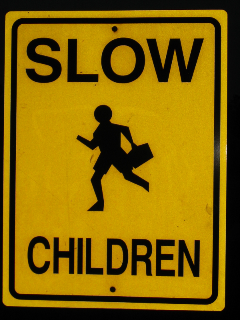
Last week, former Judge Ted Hughes issued a searing indictment of the Ministry of Children and Family Development and its dysfunctional child protection system that had striking parallels with what is happening to our K-12 public school system in this province.
Exaggeration you say?
Think again.
Judge Hughes found that the child protection system in BC had been undermined by massive government cutbacks, a revolving door in senior leadership, major shifts in practices and poorly managed efforts to decentralize responsibilities to a local level.
While there are, mercifully, no tragic outcomes in education as happened in the child protection system, there are nevertheless visible casualties in public education. The denial of programs, services and support to thousands of kids across this province led, in large measure, to one of the most bitter teachers' strikes that BC had ever seen.
Six months later, this is still resonating, as Victoria's round table seems unable to reach a consensus on the controversial issue of class size and composition.
The instability that Hughes identified in the child protection system is equally present in our education system. Since 2002, Victoria has dramatically cut education funding by downloading financial responsibilities for a teachers' salary increase on to school boards. Other cuts, direct or indirect, followed. These cutbacks continue right up to the present day, despite repeated denials by successive ministers of education.
How to create chaos
Some may think that our education system's difficulties are relatively minor when compared with the chaos in the Ministry of Children and Families. Still, when the impact of all that has happened in education over the past five years are itemized and weighed, the same four major concerns that Hughes noted emerge clearly:
Massive cutbacks (over 2,500 teachers laid off).
The revolving door of ministers of education (three in five years).
Major shifts in policies (the over-the-top emphasis on testing, examinations and accountability and a complete reorganization of the ministry around this policy shift).
Poorly managed efforts at decentralization.
Consider the yet-to-be-tabled 'repurposing' bill. Last October, the deputy education minister blindsided school trustees with the abrupt announcement that they should "repurpose" themselves. They were informed that a major school reorganization was in the offing and little more information than that - and then were told to respond within six weeks. The draft bill (subsequently leaked to trustees) was viewed by many as both arbitrary and undemocratic as it was designed to insulate Victoria from criticism to ongoing cuts by shifting responsibility to a local level.
Add to this:
Repeated flip flops on policies and on education funding.
Numerous court challenges to ministry practices by parents. (The ministry lost on trying to deny help for special-needs students.)
Court challenges by teachers. (The ministry lost on trying to deny the right to speak to parents on program shortfalls at parent-teacher conferences.)
Court challenges by education groups. (Currently before courts is a case charging the undemocratic composition of School Planning Councils.)
An involuntary four-day week for students due to underfunding.
The blatant and unsuccessful attempt by ministry officials to undermine the credibility of Vancouver's non-partisan Save Our Schools advocacy group in 2003.
The closure of over 100 schools.
The systematic alienation and bypassing of the province's teachers in key policy and program decisions.
The growing number of school districts with business companies in financial difficulties.
When adding all of this together, one wonders how much stress and turmoil our system can take before it sinks into deeper and more troubled waters.
Commission needed
Amazingly, the system seems to carry on despite the welter of tribulations that it encounters, but make no mistake about it, we are now stretching our luck as storms of increasing cynicism, alienation and lack of trust continue to gather on the horizon.
Part of this instability was due to the non-stop introduction of new initiatives while previous initiatives had scarcely time to take hold. Many in the field felt that we were undergoing change for the sake of change, as was the case of Christy Clark's hastily assembled, off-the-cuff physical education program. This had to be withdrawn and reissued a year later.
Or take the recent abrupt change for granting special-education kids school leaving certificates, which drew close to 3,000 protest signatures, forcing the ministry to amend its stance.
While we are nowhere near the almost total collapse that led to the current chaos in the Ministry of Children and Family Development, we are nevertheless at the point in education where with so much wear and tear on our system that a non-partisan and totally independent review of K-12 education is called for.
It has been two decades since the last royal commission was set up in this province and, since that time, almost every other province in Canada has had at least one independent external review of its public school system. For example, Alberta's unprecedented teachers' strike in 2002 led to the creation of the Commission on Learning, leading to the landmark 2003 report entitled: Every Child Learns. Every Child Succeeds.
Over the past five years we have had far too much confrontation, far too much overloading of the curriculum, far too much spin-doctoring of policy changes, far too much lack of consensus and far too much upheaval and uncertainty for our public schools to move cooperatively forward into the future.
It's time to stop and reflect.
An independent and non-partisan Commission on Teaching and Learning for the K-12 school system in British Columbia is urgently needed.
Noel Herron is a former Vancouver principal and school trustee. ![]()














Tyee Commenting Guidelines
Comments that violate guidelines risk being deleted, and violations may result in a temporary or permanent user ban. Maintain the spirit of good conversation to stay in the discussion.
*Please note The Tyee is not a forum for spreading misinformation about COVID-19, denying its existence or minimizing its risk to public health.
Do:
Do not: